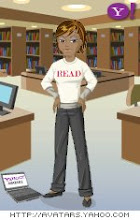The word, "wiki" is the Hawaiian word for "quick-quick" or hurry. Some of the benefits that make the use of wikis so attractive are:
- Anyone (registered or unregistered, if unrestricted) can add, edit, or delete content.
- Tracking tools within wikis allow you to easily keep up on what been changed and by whom.
- Earlier versions of a page can be rolled back and viewed when needed.
- Users do not need to know HTML in order to apply styles to text or add and edit content. In most cases simple syntax structure is used.
Discovery Exercises:
- For this discovery exercise, you are asked to take a look at some school and library wikis and blog about your findings. Here are a few examples to get you started:
SJCPL Subject Guides – a pathfinder wiki developed by the St. Joseph County Public Library system.
Library Success: A best practices wiki
The Albany County Public Library Staff wiki – an example of a wiki created for library staff to document procedures.
Library Bloggers Wiki
Sample school wiki
Sample Literary Circle Wiki (10th Grade English)
http://teacherlibrarianwiki.pbwiki.com/ or pbWORKS for educators - Create a blog post about your findings. What did you find interesting? What types of applications within libraries and schools might work well with a wiki?
Discovery Resources:
Use these resources to learn more about wikis.
- Wiki, wiki, wiki - from the Core Competency blog of the Public Library of Charlotte-Mecklenburg County.
- Wikis: A Beginner’s Look – an excellent short slide presentation that offers a short introduction and examples.
- What is a Wiki? – Library Success wiki presentation.
Wikis can be made for any classroom!
- Idea #1: Collaborative note-taking. Everyone pitches in and adds a fact or two about a topic. Teachers can encourage students to include opinions, challenges, and appropriate criticism. Students would then write essays using only these notes. Make sure that each addition includes a citation to website, book, or database, including page numbers so that it can be checked.
- Idea #2: History. Students can compile a wiki of famous artists, architects, writers, and other key historical figures from a city, state, or country.
- Idea #3: Create a "top 10" lists and supporting material. This could include scientists and their discoveries, top writers and their books, ... you get the idea.
- Idea #4: Mission trading cards (see Week 3), once completed, could be added to a class wiki.
So what's in a wiki? Find out by doing some exploring on your own.
[Note: Please remember to include WEEK# and THING# in your heading posts.]


